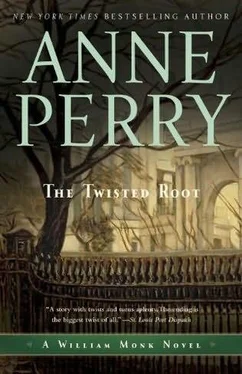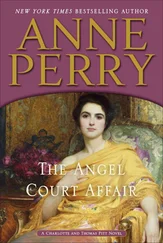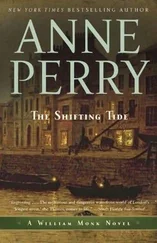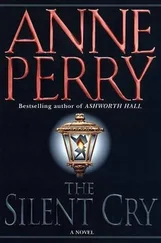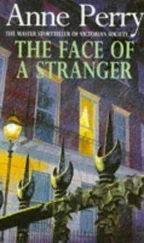Anne Perry - The Twisted Root
Здесь есть возможность читать онлайн «Anne Perry - The Twisted Root» весь текст электронной книги совершенно бесплатно (целиком полную версию без сокращений). В некоторых случаях можно слушать аудио, скачать через торрент в формате fb2 и присутствует краткое содержание. Жанр: Исторический детектив, на английском языке. Описание произведения, (предисловие) а так же отзывы посетителей доступны на портале библиотеки ЛибКат.
- Название:The Twisted Root
- Автор:
- Жанр:
- Год:неизвестен
- ISBN:нет данных
- Рейтинг книги:5 / 5. Голосов: 1
-
Избранное:Добавить в избранное
- Отзывы:
-
Ваша оценка:
- 100
- 1
- 2
- 3
- 4
- 5
The Twisted Root: краткое содержание, описание и аннотация
Предлагаем к чтению аннотацию, описание, краткое содержание или предисловие (зависит от того, что написал сам автор книги «The Twisted Root»). Если вы не нашли необходимую информацию о книге — напишите в комментариях, мы постараемся отыскать её.
The Twisted Root — читать онлайн бесплатно полную книгу (весь текст) целиком
Ниже представлен текст книги, разбитый по страницам. Система сохранения места последней прочитанной страницы, позволяет с удобством читать онлайн бесплатно книгу «The Twisted Root», без необходимости каждый раз заново искать на чём Вы остановились. Поставьте закладку, и сможете в любой момент перейти на страницу, на которой закончили чтение.
Интервал:
Закладка:
"I didn’t mean …" he began, then bit the words back, the pink deepening in his cheeks.
"Yes, you did," she contradicted him, making the most of his embarrassment. "But I suppose I can understand it. You must feel very vulnerable, coming away from your post to care for your grandfather. I swear to you that I have no motive for being here except to offer him some care, according to my profession, and to talk with him over old memories I can share with no one who has not had the experiences from which they spring. You must believe me, or not, as circumstances prove me." And without waiting to see his response, she turned and went back in through the door, leaving it ajar behind her for the warm air to come in. She was only half aware of Michael’s footsteps as he walked away.
She remained far longer than she had originally intended. To begin with she had talked comparatively little, answering a few questions about what life had been like for her in the hospital at Scutari, and even describing Florence Nightingale. Robb was interested to hear about her, what she looked like, her demeanor, her voice, even her manner of dress. Such was her reputation that the smallest details held his attention. Hester was happy to answer, feeling memory so sharp she could almost smell the blood and vinegar again, and the sickening odor of gangrene and the other acrid stenches of disease. She could feel the summer heat and hear the buzzing of flies, as if the mild English sun coming in through the windows were the same, and it would be a Turkish street outside.
Halfway through the afternoon he fell asleep, and she was able to stand up and tidy the kitchen space a little, ready to prepare him another cup of tea, should he want it. She would certainly welcome one herself, milk or no milk to go with it. She considered going out to purchase some but decided not to. It would be a slight to his hospitality, a small and needless hurt. Tea was perfectly adequate without.
She tried the closed cupboard, to see if there was anything in it which might help him should he have another attack, any herbal leaves such as camomile to settle the stomach, or feverfew to help headache or even a little quinine to reduce temperatures. She was pleased to find all those things, and also a small packet that suggested morphine to her. A taste on a moistened finger confirmed it. This was quite a respectable medicine cabinet, too accurate to his needs to have been collected by an amateur or by chance, and too expensive to have been purchased out of a police sergeant’s pay, except by the most desperate economies elsewhere.
She closed the cupboard silently and stood facing the room, her mind whirling. Morphine was one of the principal medicines missing from the hospital. She had assumed, as everyone else had, that it was being taken for addicts who had been given it for pain and now could not survive without it. But perhaps it was being taken to heal the sick who could not come to the hospital, people like John Robb. Certainly, that was still theft, but she could not find it in herself to disapprove of it.
The questions that burned in her mind were who had brought them and did Michael Robb know. Was that, even in part, the cause of his concern at her being here?
She did not believe it. Intelligence told her it was possible, instinct denied it without consideration.
The old man himself, so peacefully asleep in the afternoon sun, undoubtedly must know who had brought them, but would he know they might be stolen? He might guess, but she thought it unlikely. She would not ask him. There was no decision to make. The question did not arise that she should pursue it. She sat down and waited patiently until he should awaken, then she would make him tea again, with a little more honey. It would be a good idea to bring him a further supply, to make up for what she had drunk herself.
He awoke greatly refreshed and delighted to find her still there. He started to talk straightaway, not even waiting while she served tea and brought it for them both.
"You asked about my sailing days," he said cheerfully. "Well, o’ course the greatest o’ them was the battle, weren’t it!" He looked at her expectantly, his eyes bright.
"The battle?" she asked, turning around to face him.
"C’mon, girl! There’s only one battle for a sailor-only one battle for England-really for England, like!"
She smiled at him. "Oh … you mean Trafalgar?"
" ’Course, I mean Trafalgar! You’re teasin’ me, aren’t you? You’ve gotta be."
"You were at Trafalgar! Really?" She was impressed, and she allowed it to show in her voice and her eyes.
"Surely I was. Never forget that if I live to be a hundred- which I won’t. Great day that was … an’ terrible, too. I reckon there’s bin none other like it, nor won’t be again."
She poured the water onto the tea. "What ship were you on?"
"Why, the Victory, o’ course." He said it with pride in his voice so sharp and clear that for a moment she could hear in it the young man he had been over half a century before, when England had been on the brink of invasion by Napoleon’s armies and nothing stood between them and conquest except the wooden walls of the British fleet-and the skill and bravado of Horatio Nelson and the men who sailed with him. She felt a stirring of the same pride in herself, a shiver of excitement and knowledge of the cost, because she, too, had seen battle and knew its reality as well as its dream.
She brought the tea over to him and offered him a cup. He took it, and his eyes met hers over the rim.
"I was there," he said softly. "I remember that morning like it were yesterday. First signal come in about six. That was on the nineteenth of October. Enemy had their tops’1 yards hoisted. Least that’s what we heard later. Then they were coming out o’ port under sail. Half past nine and bright light over the sea when we heard it on the Victory." He shook his head. "All day we tacked and veered around toward Gibraltar, but we never saw ’em. Visibility was poor-you got to understand that. Weather gettin’ worse all the time. Under closereefed topsails, we were, an’ too close to Cadiz."
She nodded, sipping her tea, not interrupting.
"Admiral gave the signal to wear and come northwest, back to our first position. Next day, that was, you see?"
"Yes, I see. I know the battle was on the twenty-first."
He nodded again, appreciation in his face. "By dawn o’ the twenty-first the admiral had it exactly right. Twenty-one miles north by west o’ Cape Trafalgar, we were, and to windward o’ the enemy." His eyes were smiling, shining blue, like the sea that historic day. "I can smell the salt in the air," he said softly, screwing up his face as if the glare of the water blinded him still. "Ordered us into two columns and make full sail."
She did not speak.
He was smiling, his tea forgotten. "Made a notch on me gun, I did, like the man next to me. He was an Irishman, I remember. The admiral came around to all of us. He asked what we were doin’. The Irishman told him we were making a mark for another victory, like all the others, just in case he fell in the battle. Nelson laughed an’ said as he would make notches enough in the enemy’s ships.
"About eleven in the morning the admiral went below to pray, and wrote in his diary, as we learned afterwards. Then he came up to be with us all. That was when he had the signal run up." He smiled and shook his head as if some thought consumed him. "He was going to say ’Nelson confides,’ but Lieutenant Pascoe told him that ’expects’ was in the Popham code, an’ he didn’t have to spell it out letter by letter. So what he sent was ’England expects that every man will do his duty.’ " He gave a little shrug, looking at her to make sure she knew how those words had become immortal. He saw it in her face, and was satisfied.
Читать дальшеИнтервал:
Закладка:
Похожие книги на «The Twisted Root»
Представляем Вашему вниманию похожие книги на «The Twisted Root» списком для выбора. Мы отобрали схожую по названию и смыслу литературу в надежде предоставить читателям больше вариантов отыскать новые, интересные, ещё непрочитанные произведения.
Обсуждение, отзывы о книге «The Twisted Root» и просто собственные мнения читателей. Оставьте ваши комментарии, напишите, что Вы думаете о произведении, его смысле или главных героях. Укажите что конкретно понравилось, а что нет, и почему Вы так считаете.
